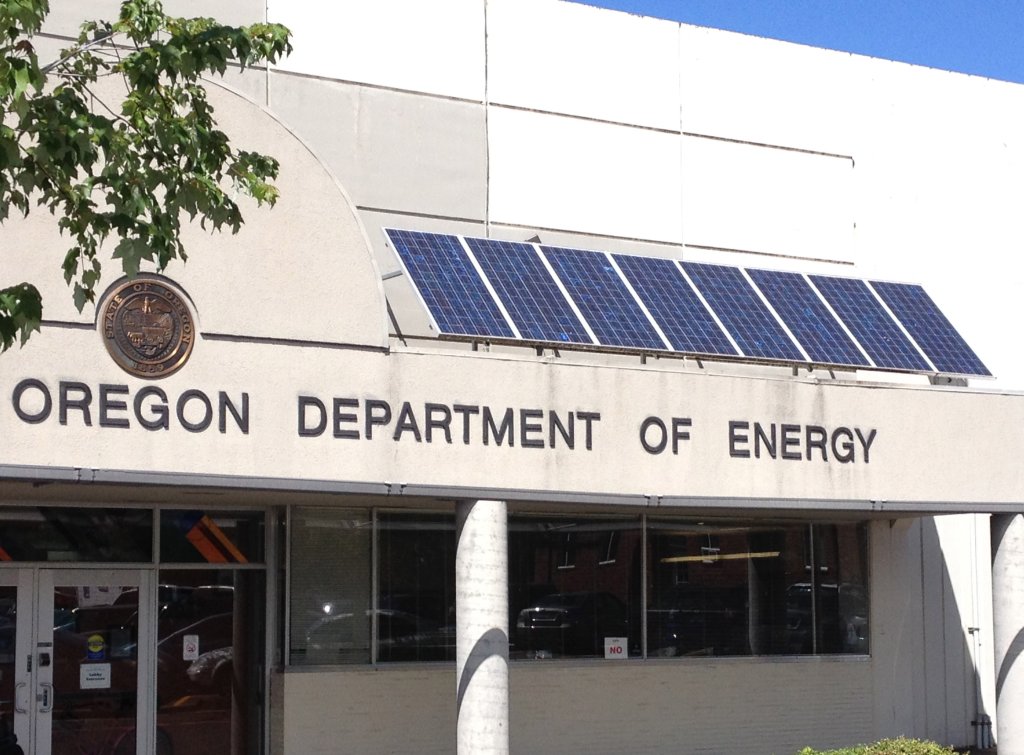No headline.
Published 6:14 am Sunday, October 25, 2015

- No headline.
A legal opinion at the center of the Oregon Department of Energy’s plan to legitimize deeply discounted sales of renewable energy and efficiency tax credits will remain secret, under a decision by the Oregon Department of Justice this week.
Energy officials claimed for years that lawyers at the Department of Justice vetted and signed off on the agency’s policy to allow the discounted sales, which lawmakers have said contradicted their intent when they passed laws to regulate prices for the energy tax incentives. However, a former energy department director said the agency’s decision not to release the DOJ’s 2015 written opinion — which reporters from EO Media Group/Pamplin Media Group and The Oregonian subsequently asked the DOJ to order the energy agency to release — suggests the lawyer who advised the energy department might have raised doubts about the department’s handling of the tax credits.
Trending
The state issues the tax credits to owners of renewable energy and efficiency projects, who can use the credits to offset their taxes or sell them at a discount to raise capital. A majority of the energy tax credits issued between 2006 and 2014 were sold, according to analysis by the EO Media Group/ Pamplin Media Group Capital Bureau. Lawmakers wanted to ensure nearly all of the benefit from the tax credits went to the energy projects they were supposed to incentivize, so they passed laws requiring the Department of Energy to use a formula to set prices.
After energy officials increasingly faced questions in fall 2014 about the discounted sales from their own staff, a state tax auditor and credit brokers, the agency adopted a temporary rule in March in an attempt to retroactively eliminate price regulations going back to mid-2012. Agencies use administrative rules to implement state law, and they typically seek advice from DOJ lawyers on whether the rules follow the law.
Lynn Frank, a former director of the Department of Energy, said that in some cases, legal advice from the DOJ clearly outlines how state law supports a proposed administrative rule. Alternately, the lawyers might advise agency officials on the risk that the agency could face lawsuits as a result of the proposed rule.
“The only reason I can think of they wouldn’t release (this DOJ opinion) is because it contained some doubt,” Frank said. “If it affirmed it, there would be no reason not to release it.”
A draft document written by a policy analyst at the agency contains a hint that energy officials had been advised their practice of allowing people to ignore price regulations might carry legal risk.
“Without this rule amendment, project owners using the transfer process would have to use the rate established by rule for the pass-through program,” policy analyst Elizabeth Ross wrote in a document outlining the need for the administrative rule, which she read at a June 30 public meeting.
Trending
Ross’ statement contradicted what other energy and Department of Revenue officials, in particular former energy Chief Financial Officer Anthony Buckley, had been telling energy tax credit buyers, sellers and brokers in recent years.
For example, Buckley wrote in an Oct. 16, 2014 email to consultant Aaron Berg that according to energy officials’ understanding of state law, “(Oregon Department of Energy’s) pricing can be referenced, but is not mandated.” Berg owns the firm Blue Tree Strategies, which brokered tax credit sales.
At a legislative hearing in September, a lawyer from the nonpartisan Office of the Legislative Counsel questioned whether the energy department even had the authority under state law to adopt a rule to allow people to bypass price regulations.
“It seems that is doubtful that is within the legislative intent,” said senior deputy legislative counsel Kate Tosswill, referring to the administrative rule to allow negotiated price transfers. “Similarly, the rule that sets forth those two types of transfers, that would be outside the scope of intent of the enabling legislation.”
The energy department has repeatedly refused requests from lawmakers and reporters to release the legal opinion, and agency spokeswoman Rachel Wray said that keeping the advice confidential allows the agency to receive candid legal advice.
“State laws related to attorney-client privilege support agencies like ours being able to ask legal questions of and receive candid and confidential advice from counsel,” Wray wrote in an Oct. 21 email.
Michael Kaplan, director of the energy department, reports directly to Gov. Kate Brown. However, a spokesman for the governor said it was not up to the governor to decide whether to release the legal opinion.
“Your organization’s request and subsequent appeal for the document in question has been reviewed and decided by the Department of Justice,” spokesman Chris Pair wrote in an Oct. 22 email. “That process falls solely within the purview of DOJ and the Attorney General, and therefore, the decision whether or not to release the document in question was the Department of Justice’s, not the Governor’s, to make.”
In an Oct. 19 response to reporters who requested DOJ order the release of the document, Deputy Attorney General Frederick Boss wrote that reporters had not provided adequate evidence that energy officials waived their attorney-client privilege by discussing the legal opinion from DOJ lawyer Melisse Cunningham with tax credit brokers, auditors at the Secretary of State’s office and others.









